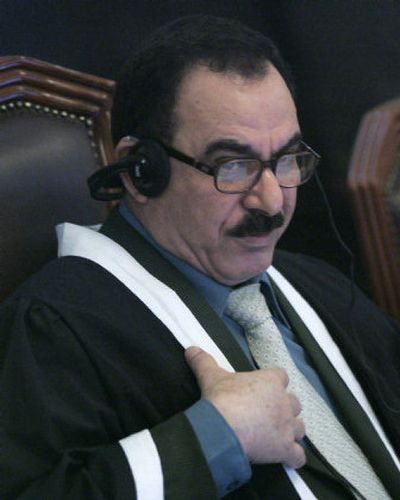Saddam’s judge fired for remark

BAGHDAD, Iraq – The Iraqi government Tuesday fired the chief judge in Saddam Hussein’s genocide trial, prompting accusations of political interference in the highly sensitive trial and raising renewed questions over the fairness of the effort to bring Iraq’s former dictator to justice.
Government spokesman Ali Dabbagh said the decision to remove Judge Abdullah al-Amiri was taken at a Cabinet meeting as a result of the judge’s comment in court last week that he did not regard Saddam as a dictator. The Cabinet, known as the Council of Ministers, then issued an order to the U.S.-created Iraqi Special Tribunal trying Saddam to replace him, Dabbagh said.
His comment shows “he is not entitled to be considered a neutral judge,” Dabbagh said. Al-Amiri has been transferred elsewhere in the judiciary.
With the attempt to bring Saddam to justice already clouded by other controversies, human-rights groups said the move could damage the presumed independence of the court and endanger a fair trial for Hussein and his fellow former regime officials.
“What is disturbing is the evident political pressure being exerted by the political leadership of Iraq on the judicial process,” said Richard Dicker, director of the International Justice Program at the New York-based Human Rights Watch. “I think it raises serious questions about the credibility of the trial.”
Iraq’s new coalition government is dominated by the Shiite and Kurdish parties whose supporters were the main victims of the crimes for which Saddam is charged, and Sunni politicians also condemned the judge’s removal as political interference and a violation of the clauses of Iraq’s newly adopted constitution providing for an independent judiciary.